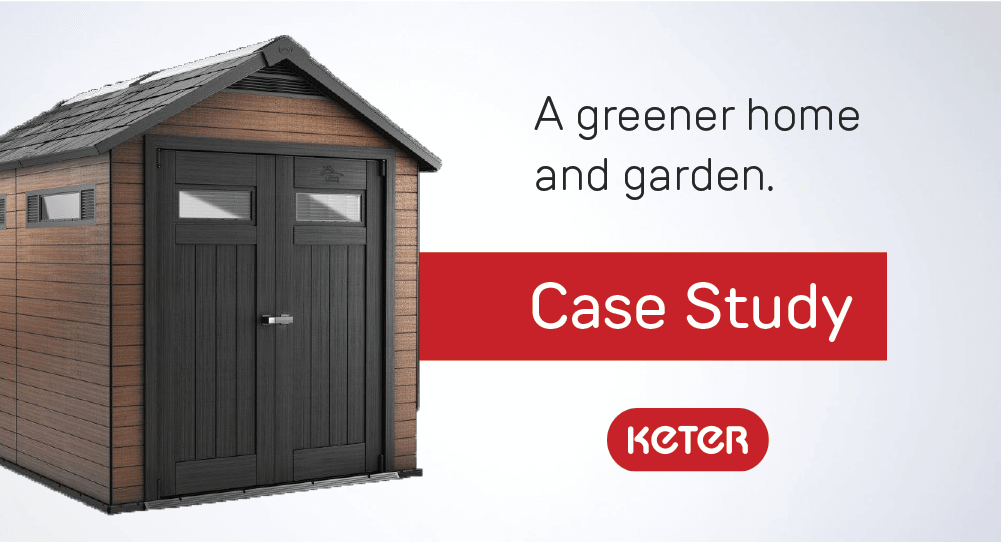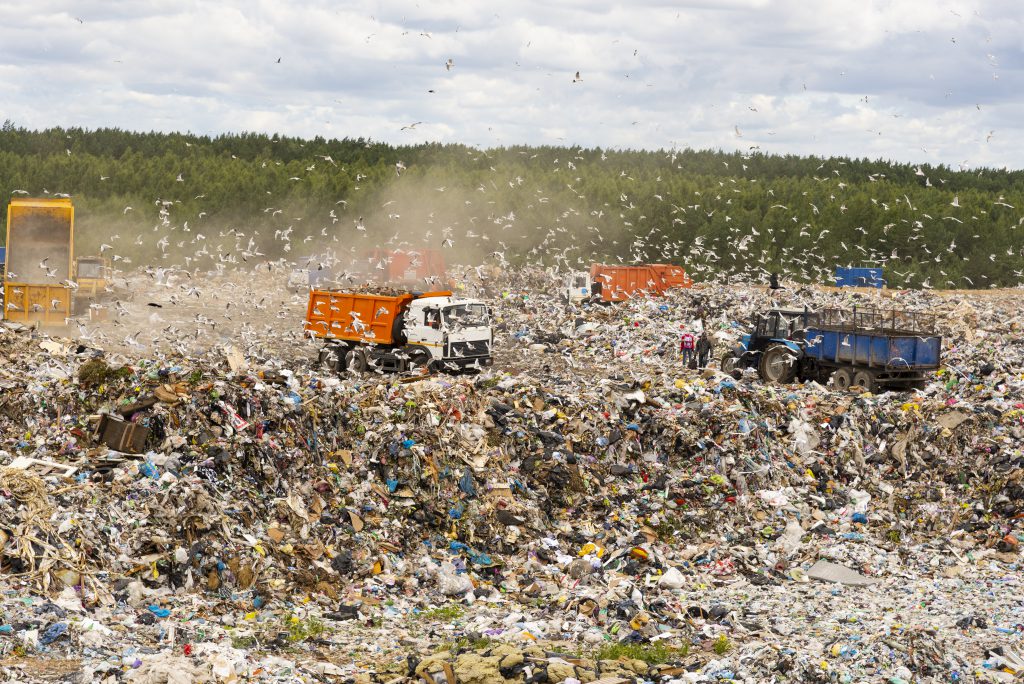The Customer: About Keter
With its focus on creating innovative products that are stylish, practical, and durable, Keter has spent the past 70 years inspiring people everywhere to create amazing spaces in their homes and gardens. The award-winning manufacturer has over 20 plants worldwide, operates in 100 countries, and is a key supplier to major world leader retailers. Keter’s products can be found in more than 25,000 retail outlets worldwide and multiple online ecommerce platforms.
With a focus on sustainable innovation driven by consumer insight, Keter has embraced sustainability initiatives that minimize its environmental impact by reducing pollution and advancing circular economy using recycled content and recyclable design.
To answer growing consumer demand for sustainable products and support their global ESG goals, the consumer goods brand is looking for ways to reduce their carbon footprint through the implementation of sustainable materials as part of their overall efforts to increase the use of recycled content.
One of Keter’s primary motivations in partnering with UBQ Materials to create sustainable products was UBQ’s significant value propositions.
“To reach our climate goals, we are going far beyond the classic recycling method by incorporating climate-positive UBQ™,” said Iftach Sachar, MD Global Sustainability, Marketing and Innovation of Keter Group. “This partnership will allow us to differentiate ourselves in the market, bringing a new level of sustainability to consumers and retailers without compromising on quality or competitive pricing of our products.”
The Discovery
Keter was one of the first companies UBQ contacted when going to market in late 2018. By 2020, Keter had made a significant leap in its sustainability goals and adopted an ambitious roadmap to reducing its operation’s carbon footprint.
To achieve true sustainability, every stage of a product’s lifecycle, from raw materials and manufacturing to reuse and recycling, must play a role in addressing climate change. Keter realized UBQ’s innovative thermoplastic material was the solution they’d been looking for.
Ultimately, both companies agreed to partner in the development of a business relationship. Keter wanted to secure a significant portion of UBQ™’s existing and future capacity, and UBQ was now ready to handle such a goal.
The Challenge
There were three major challenges Keter faced in incorporating UBQ™ material into its products. To start, they wanted to rapidly implement the highest percentage possible of the material in their different product lines while still maintaining functionality and looks. They also needed to validate functionality in products with high load requirements like chairs and shelving. Finally, UBQ™ currently has a natural dark color that limits its applicability for Keter’s product color range, which is quite broad.
But what started as challenges quickly became advantages as the two companies worked together to identify applications that were ideal matches for UBQ’s existing capabilities. They began by targeting suitable product lines such as shelving units and outdoor sheds, one of the Keter line’s largest products. As to validating UBQ™ implementation in each of Keter’s extensive line of products, it’s a time-consuming and rewarding task that will continue as the partnership develops.
The Process
By choosing the “low-hanging fruit,” e.g. sheds and shelving, Keter was able to quickly start incorporating UBQ™ into some of its largest and most popular lines of products. The company is also working with UBQ Materials in the launch of its newest product line, Beton, which has the look and feel of concrete, leveraging the natural look of the UBQ™ material.
A sustainable alternative plastic material, UBQ™ material can also substitute raw materials like wood, and concrete in the manufacturing of industrial and consumer goods. The climate-positive value of UBQ™ helps manufacturers reduce the carbon footprints of their products and generally improve environmental claims such as waste diversion, emission prevention, and recycled content. It also encourages Keter to include a significant portion of UBQ™ material in its cornerstone products and particularly in the Beton line.
The Results
Keter’s sustainability goal is to increase its manufacturing’s recycled content to 55% within five years. It also wants to leverage its use of UBQ™ material in the marketing of its products, emphasizing recyclability. Both goals are on track to being realized.
Keter is so confident in UBQ Materials’ ability to help meet its sustainability objectives that it has reached an agreement to potentially become the largest user of its product. UBQ’s planned first full-scale production facility in the Netherlands will have an annual production output of over 72,000 tons of UBQ™ material, one-third of which is already allocated to Keter.
UBQ Materials’ competitive advantage is to help manufacturers achieve a net-zero or even climate-positive impact. As the UBQ process uses relatively small amounts of energy and no water, while generating no production waste or effluents, it beautifully aligns with Keter’s stated sustainability goals.


